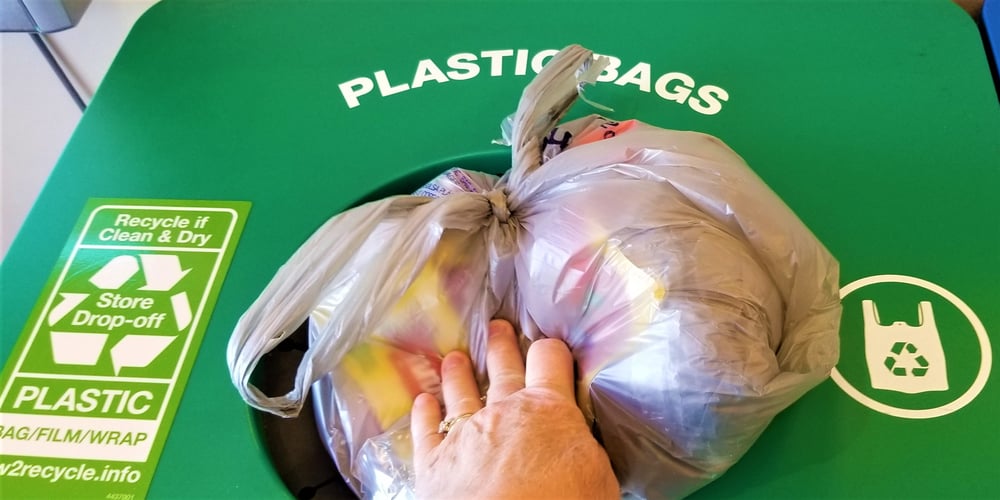A few months ago, we introduced our new community action initiative, Verb for Humanity, via a blog post. In that post, we briefly touched on the importance of ESG scores in the modern business sphere. Since then, we’ve gotten a lot of feedback about ESG ratings—primarily, questions about what these scores are, how we’re rated, what companies can do to improve their scores. In this three-part blog series, we’ll delve further into this concept, discussing each of the three aspects of ESG in depth. Today’s topic? How to create an environmentally responsible company. Let’s get started!
Recap: ESG Ratings
As we mentioned in this blog post, the phrase ESG Reporting was coined in 2005 to refer to how companies adhere to modern environmental, social and governance standards. According to the Harvard Business Review, “’Environmental’ disclosures include greenhouse gas emissions, water usage, waste disposal, and more. ‘Social’ disclosures include diversity, labor relations, product safety, employee health and safety, community development, and more.” ESG scores provide valuable information about companies for their customers, investors and communities, and paying attention to them is a great way to establish trust and loyalty while becoming good global citizens.

When it comes to the environmental part of an ESG score, there are a lot of things you can do, both big and small, to improve your score. Below, we’ve compiled a list of the top 5 ways to become an environmentally responsible company:
#1: Focus on Sustainability
If your company produces physical goods, there’s never been a better time to focus on creating a sustainable supply chain. IKEA perhaps is the most referenced example of this, as they’ve fully invested in sustainability throughout their entire organization, beginning with sourcing wood from sustainable forests and cotton from ethical farms, and utilizing over 700,000 solar panels. If you’re not quite ready to get on IKEA’s level, that’s okay—you can start small. Choose one aspect of your supply process, whether it’s materials, processing or shipping, and brainstorm how you can make it eco-friendly. Whether you decide to cut back on excessive packaging, purchase raw materials from a more ethical supplier, or install your own solar panels to power your manufacturing facilities, any step in the right direction is a great step to take.

#2: Say Goodbye to Plastic
Every day, approximately 8 million pieces of plastic pollution find their way into our oceans, and Scientists have recently discovered microplastics embedded deep in the Arctic ice. Not only does this have catastrophic effects on marine biospheres that eventually affect our own lifestyles and health, the very act of producing plastic contributes to environmental pollution.
Even if your company creates a purely digital product, chances are its still consuming plastics in some form via purchased products—think water bottles, grocery bags shrink-wrapped office supplies, soap bottles, etc. At Verb, we’ve taken efforts to diminish our contribution to plastic pollution by banning single-use plastics from the office. We actively encourage our employees to utilize reusable lunch containers, stainless steel straws and refillable drink bottles, and to order only products that won’t end up in a landfill—or worse, the middle of the ocean.

#3: Reduce, Reuse, Recycle
As we mentioned above, reducing your use of non-recyclable materials is a great first step. The next step? Getting out your recycling bins. If your office doesn’t have a contract with a recycling company, now is the time to sign one. Recycling isn’t just great for the environment and your ESG score—it also provides a great opportunity for you to get creative. For example, Adidas and Parley partnered to produce shoes using plastics collected from beaches and coastal regions, Patagonia is experimenting with utilizing discarded fishing nets in their products, and NortonPoint makes sunglasses with recovered ocean plastics. Taking the time to figure out what your company can do to reduce your footprint in the form of recycling can positively impact your brand AND the Earth.

#4: Get Loud
Choose an environmentally friendly cause and do what you can to support it. Passionate about reducing greenhouse gases? Consider partnering with EPA on a campaign aimed at cutting wasted energy. Worried about filling landfills? Design a billboard advocating for less household waste. Want to help save the turtles? Put together a local beach cleanup effort or consider sponsoring community trash receptacles. Your company has a voice, so use it!

#5: Cut Out Unnecessary Travel
If Covid-19 has taught us anything, it’s how prepared we are as a society to adapt to a virtual reality. When life settles in to a new normal, it may be time to reevaluate the necessity of previous travel and whether or not it can be avoided. Did you know that a “one-way flight across the Atlantic from New York City to London emits one ton of carbon dioxide per passenger?” Or that short flights produce a larger amount of greenhouse gas emissions per passenger than longer routes?
It’s clear that air travel has had a major impact on our environment, so do what you can to reduce your company’s carbon footprint in the form of travel. Ask yourself, “Does that conference HAVE to be attended in person, or will a Zoom invite do the trick?”
Mother Nature Will Thank You
Are you ready to start focusing on your company’s environmental impact? Obviously, this is a very short list, and there are a lot of other options for improving your company’s relationship with the environment but taking small steps can make a huge difference over time. Remember: we’ve only got one world, and we all live on it, so let’s do what we can to preserve it.
What is your company doing to become more environmentally responsible? Send us an email and let us know! We can’t wait to see how you’ll change the world.
-verb
